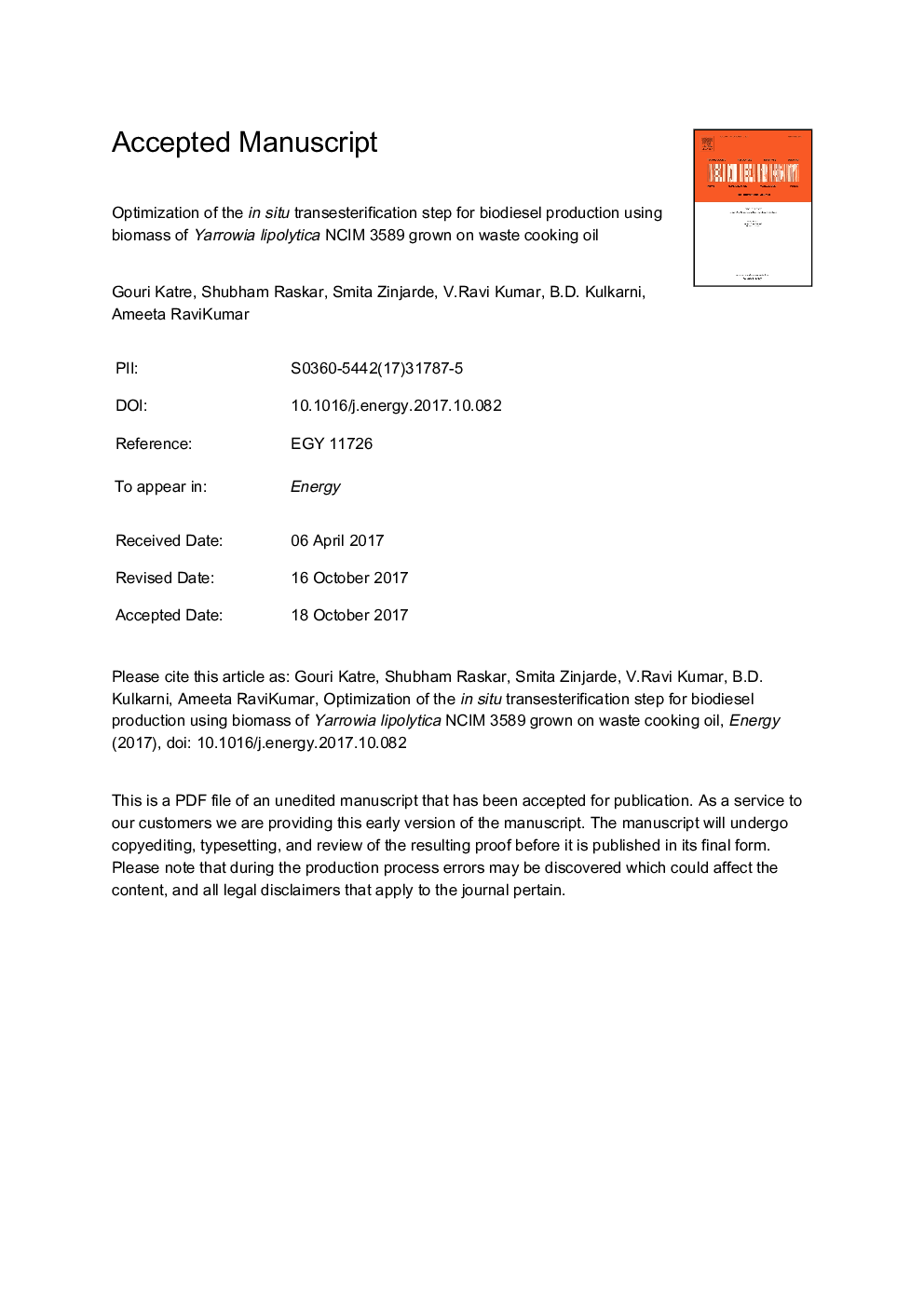| Article ID | Journal | Published Year | Pages | File Type |
|---|---|---|---|---|
| 8072569 | Energy | 2018 | 40 Pages |
Abstract
The in situ (one-step) acid-catalyzed transesterification step for conversion to biodiesel of biomass from oleaginous yeast Yarrowia lipolytica grown on waste cooking oil (WCO) is studied. The process yield of biodiesel was optimized by investigating effects of various parameters, namely, biomass, methanol, chloroform, catalyst, temperature, time and sonication. A Plackett-Burman statistical design of experiments revealed that biomass is the most significant factor influencing biodiesel (FAME, fatty acid methyl ester) production. Subsequently, a one variable design (OVD) of experiments for increased biomass loadings showed higher yields of FAME with no additional requirement of reactants, solvents or special equipment. The biomass grown on WCO had a lipid productivity of 0.042 g L-1 hâ1 and 4 g of this loading gave a high FAME yield of 0.88 g in 8 h at 50 °C with methanol: chloroform (10:1) and acid catalyst (0.2 M H2SO4,1.0 ml gâ1). The FAME profile had desirable amounts of saturated (32.81%), monounsaturated (36.41%), polyunsaturated (30.59%) methyl esters. The predicted and experimentally determined physico-chemical properties of FAME were found in accordance with specified international standards. Thus, the direct one-pot in situ transesterification reaction using Y. lipolytica biomass grown on WCO provides a high yield of biodiesel with potential applicability while simultaneously addressing the management of this pollutant.
Keywords
Related Topics
Physical Sciences and Engineering
Energy
Energy (General)
Authors
Gouri Katre, Shubham Raskar, Smita Zinjarde, V. Ravi Kumar, B.D. Kulkarni, Ameeta RaviKumar,
